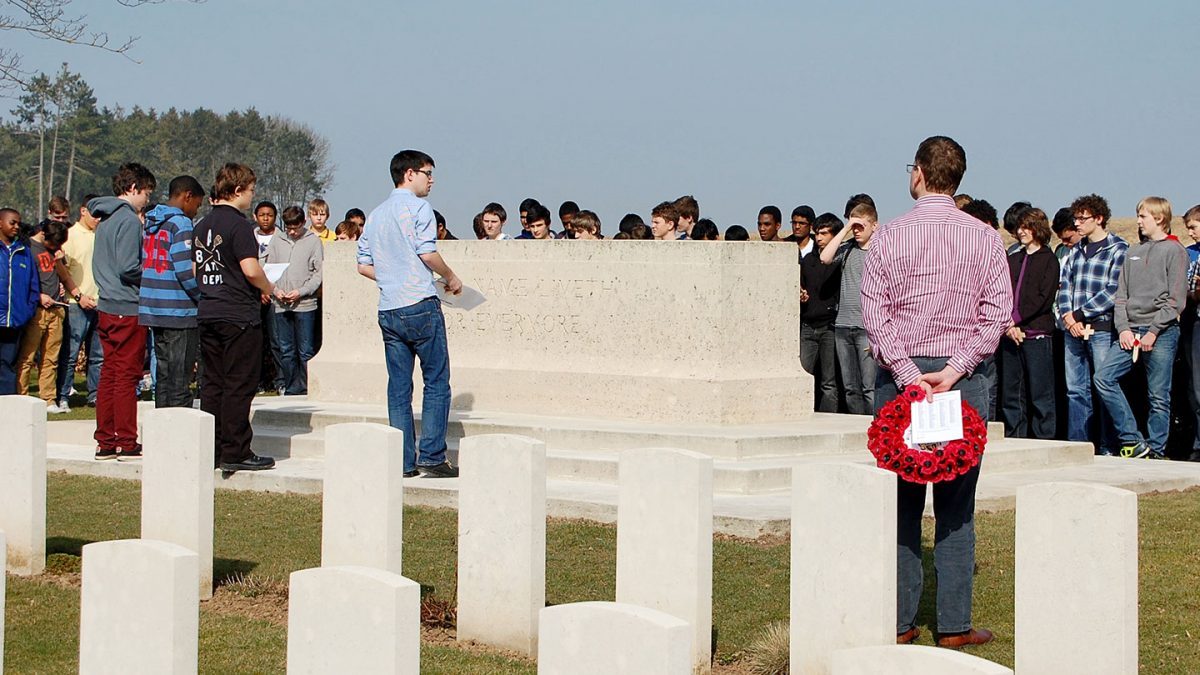
We asked our History Tours Development Manager and all-round history buff, Paula Kitching, to tell us about the battles that have shaped the world today. To say there’s no future in history is certainly not the case!
While 2015 was undeniably a big year for commemorating the anniversaries of the Magna Carta, Waterloo and Agincourt, 2016 will be just as impressive for exploring past events.
For historians, the big anniversary is going to be the battle of the Somme, although I hope that events of the Battle of Jutland and 1918 in the Middle East and elsewhere will not go unnoticed.
I’m always in two minds about anniversaries. On the one hand it is important for an event to be remembered or marked, reminding us of past events and the significance of them.
On the other hand, an anniversary sometimes focuses on only part of the story or a fragment of significance.
Lesser-known Battle of Jutland
Decisive in stopping the new German Navy from expanding out of the Baltic and trying to dominate Britain at sea, the Battle of Jutland was the most significant sea battle for the British during the First World War.
Over the two days of 31 May to 1st June 1916, the British Navy fought and succeeded in containing the Germans. To have failed may have meant a very different war for Britain.
The victory was applauded at the time and seen for the success that it was. However, a month later another battle with very different outcomes pushed Jutland and its heroes to the backs of people’s minds. Over 100 years later many have forgotten Jutland altogether.
Battle of the Somme – great losses, but what was gained?
That battle a month later was of course the gruelling Battle of the Somme, which raged for months. It is one of the most famous battles of the First World War mainly because of the first day, 1st July 1916.
On that day the British Army took 60,000 casualties, 19,000 of which were deaths – the highest number ever experienced.
The majority of men who went into battle that day for Britain were the new volunteers who had joined in response to Lord Kitchener’s call.
Whole communities across Britain and part of the British Empire were shocked to their core. Despite the appalling start, the battle continued through to November 2016.
While there were small victories and achievements, the big question of the Battle of the Somme is: were the advances, lessons learnt and tactical understanding that were achieved worth the casualties and losses caused?
The only way of even beginning to address that question is to explore all the facts and unpick some of the actions, learn about the men and women whose lives were changed forever and begin to weigh up the evidence
There is also the question of whether we can really understand how some of those decisions were made 100 years after the event in peacetime.
Exploring issues on a Rayburn Tours History Tour
When students visit the Western Front in 2016, the Rayburn Tours History Guides and I will be exploring some of those questions and issues.
We’ll draw out the history on the ground to help students reach their own conclusions and answer some of those questions over leadership and the horror of war that have lasted 100 years.
We will also be reminding students to put the whole battle into a context and into a bigger picture of a whole war.
What’s more, while a visit to the Battle of Jutland may prove a little problematic as it was fought at sea, we’ll consider how important it was to the events at the time and how the Western Front was only one aspect of a global war – even if we can’t quite take you to the waves or the deserts where those men fought.
The anniversary of the Battles of Jutland and the Somme should be a time for us to reflect on the cost of war and the legacy it can leave for people and societies.